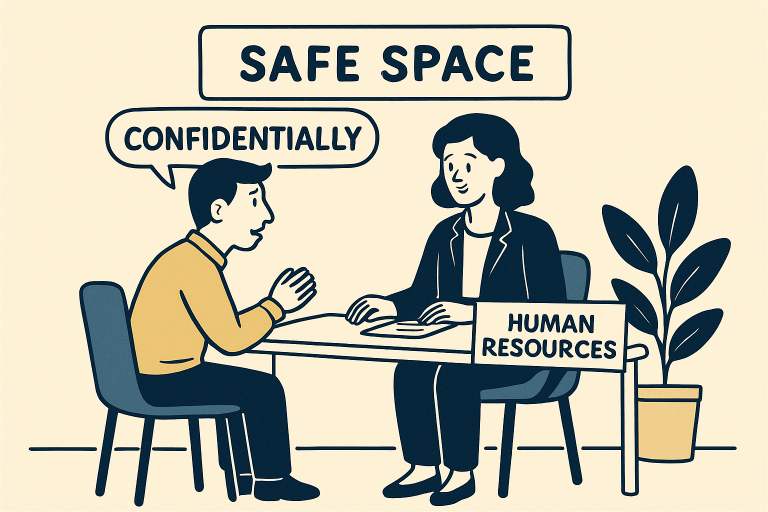Addressing workplace misconduct is a fundamental component of cultivating a safe, supportive, and productive professional environment. When faced with ethical lapses on the job, employees require trustworthy guidance, actionable steps, and reassurance about their rights. For those confronting difficult situations, it’s crucial to know your options, remain proactive in safeguarding your interests, and, if needed, connect with a whistleblower attorney who can provide expert advice tailored to your circumstances.
Many employees hesitate to step forward due to uncertainty about employer response and potential risks to their own well-being or career progression. By gaining a clear understanding of misconduct, knowing how to document incidents effectively, and adhering to established procedures, workers can take decisive action while minimizing risk.
Maintaining transparency and a strong ethical stance isn’t just beneficial for organizations—it’s essential for employee morale and overall company success. Creating an environment where concerns can be raised openly and safely not only prevents ongoing harms but also promotes workplace fairness. Learning the processes for navigating these situations is a key step in upholding workplace standards.
If you are unsure about how to address a troubling situation at work, remember that external guidance and legal resources exist to help safeguard your rights and ensure the process is handled correctly. Employees are not alone, and organizations have a responsibility to support safe and confidential reporting. For essential tips and further information, consider important resources such as guidance on avoiding retaliation claims from leading HR associations.
Understanding Workplace Misconduct
Workplace misconduct is a broad term encompassing behaviors and actions that violate company policy, ethical standards, or the law. Common examples include harassment (sexual or otherwise), discrimination, financial fraud, safety hazards, and breaches of confidentiality. Clear recognition of these behaviors is necessary for employees to act early and protect themselves and their colleagues. Organizations that establish clear reporting procedures help ensure that misconduct is addressed promptly and consistently. Educating employees about the consequences of violations reinforces accountability at all levels. Ultimately, fostering a culture of awareness and vigilance empowers everyone to contribute to a safer and more ethical workplace.
Barriers to Reporting
Despite the negative impact of misconduct, many employees hesitate to report it. The most significant barriers include:
- Fear of Retaliation: Employees worry about being demoted, terminated, or ostracized by their peers.
- Lack of Trust: Doubts about confidentiality and managerial support deter even the most conscientious workers.
- Unclear Procedures: A lack of familiarity with the reporting process leads to confusion and inaction.
Recent research by Gartner indicates that nearly half of employees do not feel reporting misconduct is the right thing to do, often due to these obstacles. Building a well-communicated, trusted process is vital in addressing this issue.
Steps to Safely Report Misconduct
- Document the Incident: Meticulously record what happened, including the date, time, location, involved individuals, and any witnesses.
- Review Company Policies: Most employers outline specific processes for raising allegations, which can be found in handbooks or internal portals.
- Choose the Appropriate Reporting Channel: Employees usually have the option to escalate issues through supervisors, Human Resources, compliance officers, or hotline services.
- Seek Support: Consult a trusted mentor or peer for advice, ensuring emotional and professional backing during what can be a stressful process.
Adhering to these steps improves the likelihood of a fair investigation and reduces exposure to risk.
Utilizing Anonymous Reporting Systems
Organizations are increasingly providing anonymous, third-party hotlines or digital platforms to facilitate discreet reporting. These systems are especially valuable for employees concerned about privacy, and they have been shown to increase incident reporting rates. By utilizing secure, anonymous systems, workers can promptly alert leadership to serious issues while reducing concerns about personal repercussions.
Legal Protections for Whistleblowers
Federal and state laws protect employees who report workplace wrongdoing. The Occupational Safety and Health Administration (OSHA) oversees a range of statutes that shield workers against retaliation related to health, safety, environmental, and other workplace violations. Understanding your legal rights ensures you can come forward with greater confidence, knowing statutory protections are in place.
Role of Organizations in Facilitating Reports
Employers bear both legal and ethical obligations to nurture a workplace culture that encourages employees to express concerns freely and without fear of reprisal. To achieve this, several practical strategies can be implemented: First, establish clear policies that regularly inform staff about reporting procedures and reinforce the strict enforcement of these policies. Second, providing training to employees and managers on how to recognize, prevent, and report workplace misconduct equips them to respond appropriately. Third, ensuring confidentiality by implementing policies that safeguard the identities of those who report or witness misconduct is crucial. Finally, taking prompt action to uphold a zero-tolerance stance towards misconduct by swiftly investigating and resolving complaints demonstrates commitment to this open culture.
Importance of Documentation
Detailed, factual documentation forms the foundation of any report or investigation into workplace misconduct. By maintaining personal copies of communications, incident notes, and any evidence, employees are better equipped to support their case if the situation escalates to a formal investigation or litigation. Reliable documentation helps ensure accuracy and fairness throughout the process.
Conclusion
Raising concerns about unethical or illegal behavior at work is both courageous and necessary. When employees understand how to identify misconduct, utilize reporting channels safely, and seek appropriate support, they help build safer and more equitable workplaces for all. Knowledge and preparation, together with legal support when needed, empower individuals to contribute to stronger organizational cultures that prioritize accountability and integrity.
